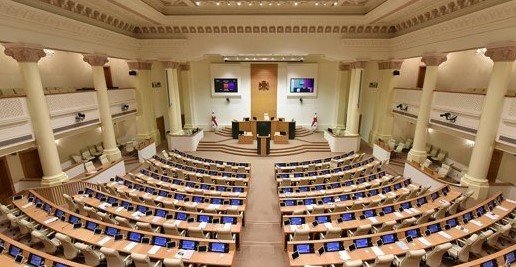In the wake of recent political developments, Georgia finds itself at a pivotal juncture, balancing its aspirations for European Union membership against the backdrop of Russian legislative influence. This delicate dance highlights the nation’s ongoing struggle to define its geopolitical identity.
The Controversial Legislation
Georgia’s political landscape was recently shaken by the introduction and subsequent withdrawal of a “foreign agents” law, eerily reminiscent of Russian policy. The proposed legislation sparked a firestorm of criticism, both domestically and internationally, casting a shadow over Georgia’s commitment to democratic values and its European aspirations.

The law’s introduction was met with immediate backlash, prompting widespread protests across the country. Critics argued that the legislation would stifle civil society and free speech, setting a dangerous precedent that aligned more closely with Russian authoritarianism than European liberalism.
The EU Perspective
The European Union has been vocal in its expectations for Georgia, emphasizing the need for reforms in key areas such as human rights, judicial independence, and political pluralism. The contentious law stood in stark contrast to these principles, threatening to derail Georgia’s progress towards EU integration.
Georgia’s retraction of the law was seen as a positive step by the EU, reaffirming the country’s dedication to European standards. However, the incident has left lingering doubts about Georgia’s trajectory and its ability to implement the necessary reforms to secure a place within the European family.
Russia’s Shadow
While the West may view the withdrawal of the law as a victory for democratic values, Russia perceives it as a validation of its own legislative approach. The Kremlin could interpret this as a sign that its influence in the region remains strong, and that not all nations are eager to adopt a Western model of governance.
The situation in Georgia is indicative of the broader battle for influence between Russia and the West. As Georgia continues to chart its course, the outcome of this struggle will have significant implications not only for the country but for the entire region’s geopolitical landscape.
